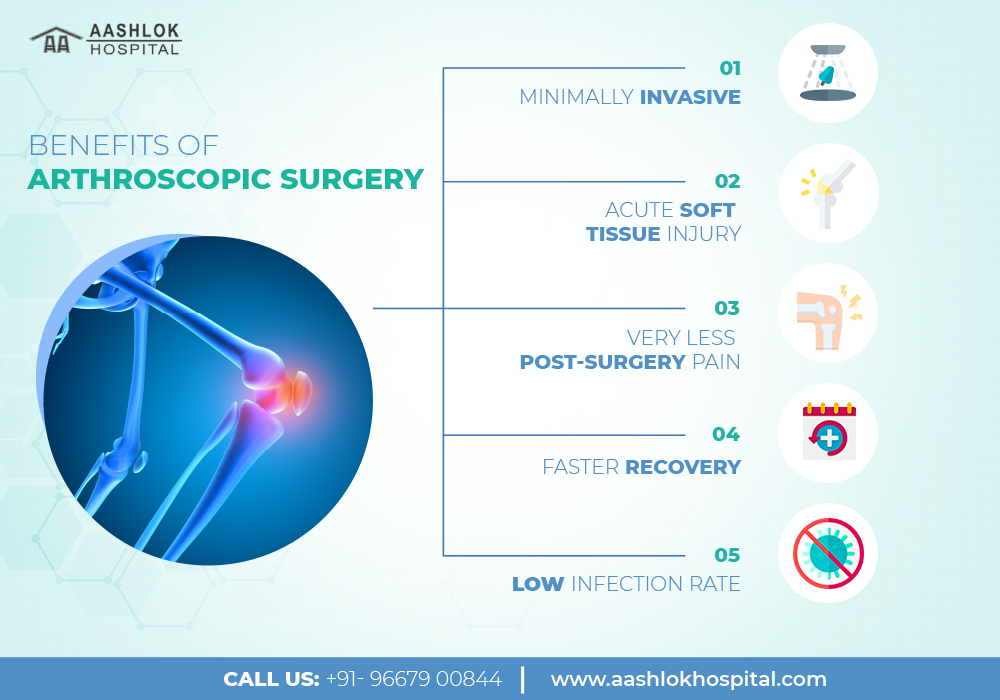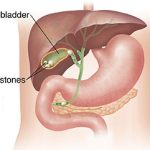Arthroscopic surgery is an orthopedic surgical procedure that is used to examine and treat the inside of a joint using a special type of camera called an arthroscope. The surgery is used both for diagnostic and treatment purposes.
Sometimes by laymen/ patients, it is also referred to as Laser surgery of the joint through the Laser has no role to play in this. The types of arthroscopy include:
- Arthroscopy knee surgery
- Hip joint arthroscopy
- Ankle arthroscopy
- Arthroscopic surgery shoulder
- Wrist arthroscopy
Our hospital answers many questions such as what is arthroscopic knee surgery.
Table of contents
Feel free to skip ahead if one topic catches your eye:
- Why is Arthroscopic Surgery done?
- Arthroscopic Surgery Procedure.
- How to Prepare for the surgery?
- What to expect after Arthroscopic Surgery?
- Cost of Arthroscopic Surgery in Delhi.
Why is arthroscopy surgery done?
- tikArthroscopy means to look inside a joint. The word “arthro” means joint and “skopein” means to look.
- Arthroscopy surgery is performed as an alternative to traditional open surgery in most cases.
- The procedure is done to visualize the internal structures of a joint including the bone and soft tissues and correct any prevailing issues.
- It is a minimally invasive procedure that is used by orthopedic surgeons to diagnose and treat joint conditions.
The benefits of arthroscopy encompass the following:
- Arthroscopic surgery requires only small incisions
- There is less trauma to the surrounding soft tissues
- The pain following the procedure is comparatively less
- Wound healing is faster as compared to a traditional open surgery
- The chances of infection are very low
Arthroscopic surgery cost in Delhi is very reasonable at Aashlok hospital
Arthroscopic surgery procedure
In this examination /procedure, your surgeon will put you under anesthesia- it may be local ( numbing the specific area alone), regional ( specific zones of the body such as upper or lower), or general anesthesia ( where you completely fall asleep)
- Joint arthroscopy is a short stay ( one day stay )procedure in most cases.
- The surgeon makes a small incision in the skin to gain access to the joint to be examined
- Small instruments that contain a tiny lens are inserted through the incision.
- This helps to capture an image of the area and transmit it to a bigger screen.
- There is included lighting that helps to magnify and illuminate the structures inside the joint.
- The fiber optics present transmit light to the end of the arthroscope that is inserted into the joint.
- The arthroscope is attached to a camera through which the surgeon will envision the joint
- The camera captures and sets out a larger image of the same onto a bigger screen.
- This allows the surgeon to see through the joint into structures such as soft tissues that include cartilage, ligaments, and also the blood vessels and nerves, etc.
- After taking a detailed and closer look, the surgeon will determine the type of injury or infection, or inflammation that is present
- During an arthroscopy, the correction of prevailing issues is also possible using techniques specific to the joint condition
- Instruments necessary for repair of the damaged tissues are effectively chosen and handled well
- After the procedure is complete, the inserted arthroscope is taken out and the incision is closed using sutures.
- The incision is covered with a sterile dressing and allowed to heal
- Following the surgery, you may experience pain, swelling, stiffness, etc at the site of the procedure
- These must be reported on time and can be managed with prescribed medications.
How to prepare for the surgery?
- A general evaluation of your health condition will be done to ensure that you are fit for the procedure
- Blood tests and other diagnostic tests will be done
- Discuss with your doctor if you are taking any medications.
- Inform your surgeon of any illness or infection that you have had in the recent past
- You may need to stop medications that cause thinning of the blood or avoid excessive clotting.
- Inform the doctor of any bleeding disorders that you might have
- If you suspect that you might be pregnant, you must inform the surgeon
- Carry any medications that you might need to take right after the procedure
- Do not eat or drink anything about six to twelve hours before arthroscopy
- Arrange for someone to help you get home after the procedure.
What to expect after arthroscopic surgery?
- Following the procedure, you will be taken to the recovery room to be observed for a while before getting discharged
- You will be given medications to relieve the pain and stiffness in the joint. These may be felt after the effects of the anesthesia wear off
- Based on the joint involved, you may need a sling, braces, crutches, or a splint for support. Use them until your next visit to the doctor
- The dressings can be removed after a period of 5 to 10 days
- The wound will start to heal in about 1 to 2 days.
- Arthroscopic knee surgery’s complete recovery time is about 3 to 12 weeks depending on the type of procedure performed during surgery.
- Do not disturb the wound or strain the joint too much
Follow the RICE principle
- Rest the joint
- Ice application
- Compress using a wrap or crepe bandage
- Elevate
- Follow the operating surgeon/physiotherapist’s instructions about mobilizing the joint
- Return to full normal activities may be possible after three to twelve weeks depending on the type of procedures performed during surgery.
- Take care to avoid strenuous activities until your doctor has asked you to.
- Keep the dressing dry and clean
- If you have persistent pain, swelling, or any signs of infection, consult your doctor
Cost of Arthroscopy in Delhi
The arthroscopic surgery cost in Delhi is about Rs 55,000 to a couple of lakhs depending on the type and number of procedures performed during surgery.
The total cost of the procedure depends upon the joint involved, the extent of repair needed, your health condition, evidence of damage caused, etc
Takeaway
The name Aashlok hospital translates to exceptional medical care in the minds of patients. Started with the sole motive of providing exceptional medical and surgical care, we stand by the same mission and values for the past 36 years. Dr. Abhishek Kumar Mishra who is in charge of Orthopaedic surgery at Aashlok has vast experience in arthroscopic surgeries. Visit us to learn how much knee arthroscopic surgery costs in Delhi. We have been recognized regionally and nationally for our quality of healthcare.
Housing the best doctors in each department, we stay committed to improving and attending to all your healthcare needs.







